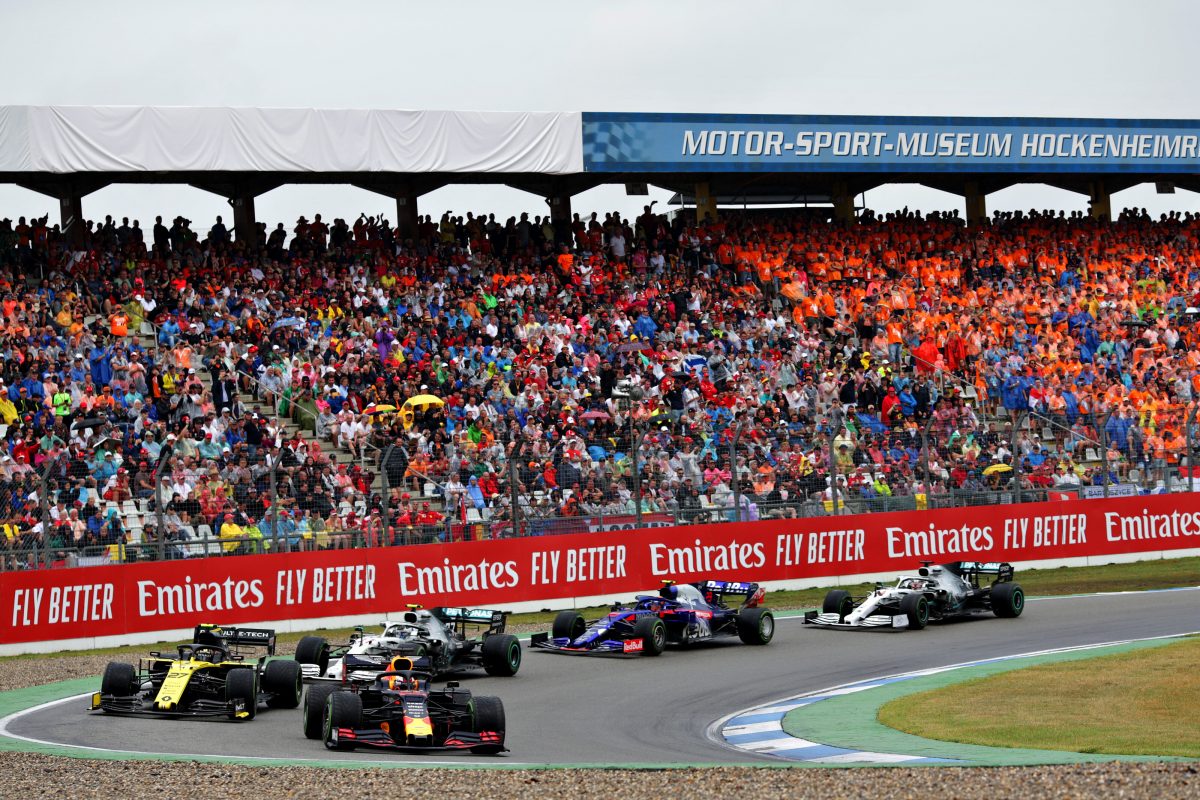
Former Williams and McLaren director Sam Michael believes the proposed rules changes for Formula 1 in 2021 don’t go far enough.
With a range of technical and commercial changes set to be introduced, including a return to ground effect, it’s poised to be one of the most significant overhauls of the sport since the introduction of overt sponsorship in 1968.
But while the changes look set to shake up the order by introducing a degree of uncertainty, Michael believes the sport will quickly revert to its current form as teams find the optimum solution.
Having worked in F1 for two decades, rising to Technical Director for Williams, and Sporting Director at McLaren, Michael has a unique insight into the inner workings of the sport, and the hurdles it faces in making sweeping changes.
It’s left the Australian suggesting F1 needs to do more than just introduce new aerodynamic rules and tweak the financial model if it is to keep it enticing to new and younger fans.
“What they’re trying to do, I think it’s a good thing to do,” Michael told Speedcafe.com.
“The move back to ground effect tunnels effectively reduces the amount of downforces created around external facing things like wings, etc.
“So I think the objective is good, I’m guessing through their studies that they’ll be able to prove that they have improved the following conditions of the car behind.”
It’s been suggested the new rules will see cars lose only 10 percent of their downforce when following another, while current cars lose as much as 50 percent.
“If they achieve that, it would be a great outcome,” Michael agreed.
“You would then in turn hope that that improves the racing, the ability to overtake or even just follow closely.
“There’s obviously some anecdotal evidence from saloon cars and series that don’t have as much downforce so therefore don’t have as much to lose.
“If they correctly met their objectives of enabling that following car then I think it will make a really good improvement, but I don’t think it’ll solve it,” he continued.
“At the end of the day if those rules are really successful and they beat the engineers in Formula 1, you wouldn’t have engineers in Formula 1.
That’s the nature of Formula 1, according to Michael, and the reason why technical change alone will inevitably see the sport return to a comparatively stagnant state.
“F1’s got this diametrically opposed objective where you’ve got a technical driven sport,” he reasoned.
“The more successful the engineers are, the more boring Formula 1 becomes. It can’t be any other way because that’s their job.
“If they went to every race and they weren’t sure of the outcome and their models weren’t good enough, they’d get sacked.
“So you’re only left with variables that occasionally we’ll get something slip through like reliability problem, or weather, or drivers; drivers making a mistake or running into you or something like that.
“Those sort of external factors are pretty much the only variables they struggle to control.
“And by the way, those they even try to model; all the F1 teams have proper sort of Monte Carlo simulation where they calculate the probabilities of different events happening, so they’re even trying to model the things they can’t control.
“Unfortunately that means what you’ve got to do, I think in Formula 1, is you’ve got to create scenarios that are equal for everybody but improve the competition so it makes it possible for more people to win.
“That’s the thing that I think they’ll struggle with to get that right.”
If given charge of the sport, Michael would look to apply the engineer change management mindset to evolve the sport more broadly, though concedes it’d be difficult given teams’ involvement in rule making and their propensity for self interest over the greater good.
“There’s two things that you’ll really struggle to get across the line in Formula 1; one is that grid order, because it’s very traditional, it’s been like that since the start of Formula 1, and the other thing is the race distance,” he suggested.
“I would definitely consider doing that (reversing the grid).
“I would also consider sprint races, potentially dividing them into two, doing what they’ve done here in Supercars where they’ve effectively got a Saturday and a Sunday race, which I personally think is more entertaining.
“But again it throws away the traditional grand prix if you like and makes a disconnect right back to the ’50s.
“I think if you’re going to keep trying to get young people involved in the sport and keep them entertained, they don’t have the attention span to sit through a 300-kilometre grand prix, they just won’t do it,” he added.
“If they do watch it, they’ll watch the start, you’ll only keep them engaged if you have a situation like the German Grand Prix where it’s immediately apparent that this is going to be an unusual grand prix.
“So it’s going to be one in 20 (races), the rest of the time they’re just going to turn it off. So the chance of actually get them to turn on the beginning is very low.
“I think if motorsports in general and F1 as the pinnacle want to keep attracting a young crowd, they’ve got to do things to keep the attention span.
“The challenge is there for all sports. So let’s say (we introduce) reverse grids, and I’d be flexible about it. One of the things that F1 is very good at internally is change.
“The whole business model of Formula 1 is change management.
“It doesn’t matter if you’re last on the grid or first on the grid, if you’re not changing and improving you’re going to die.
“What’s really remarkable about Formula 1, although internally it’s pro-change, by that I mean I get the next new barge board, get the new front suspension, flat out, turn that around, F1 is fantastic at that.
“What it is very bad at is actually applying that philosophy to the sport itself, and it’s also really contradictory.
“I know why, it’s because the teams at the front don’t want to lose competitive advantage, but if they applied that model to the sport then you would turn the whole thing on its head.
“I think if you can bring that actual internal mentality of the F1 teams to the sport, as a whole you’ll transform it within 12 months.
“I actually think that if they don’t do that, they have a real long term risk to the entertainment of the sport.”



















Discussion about this post